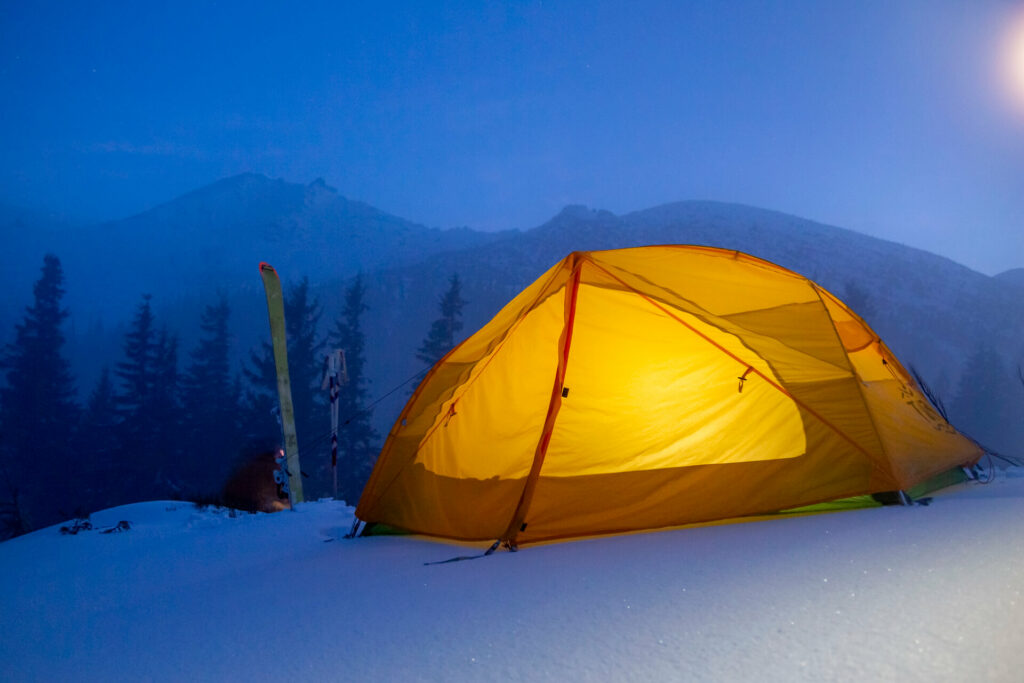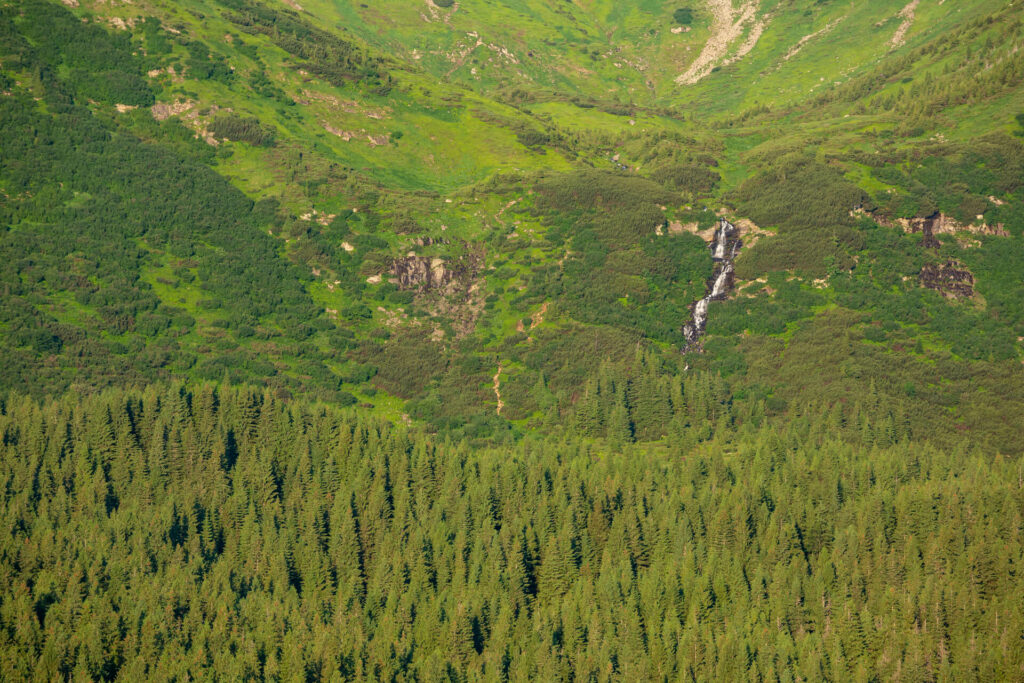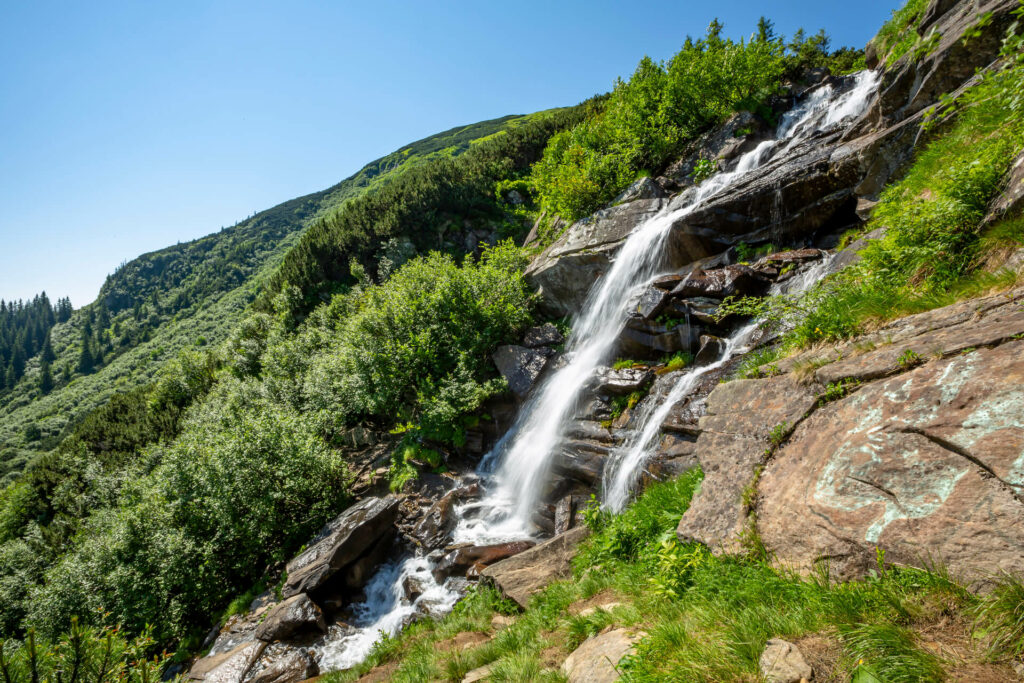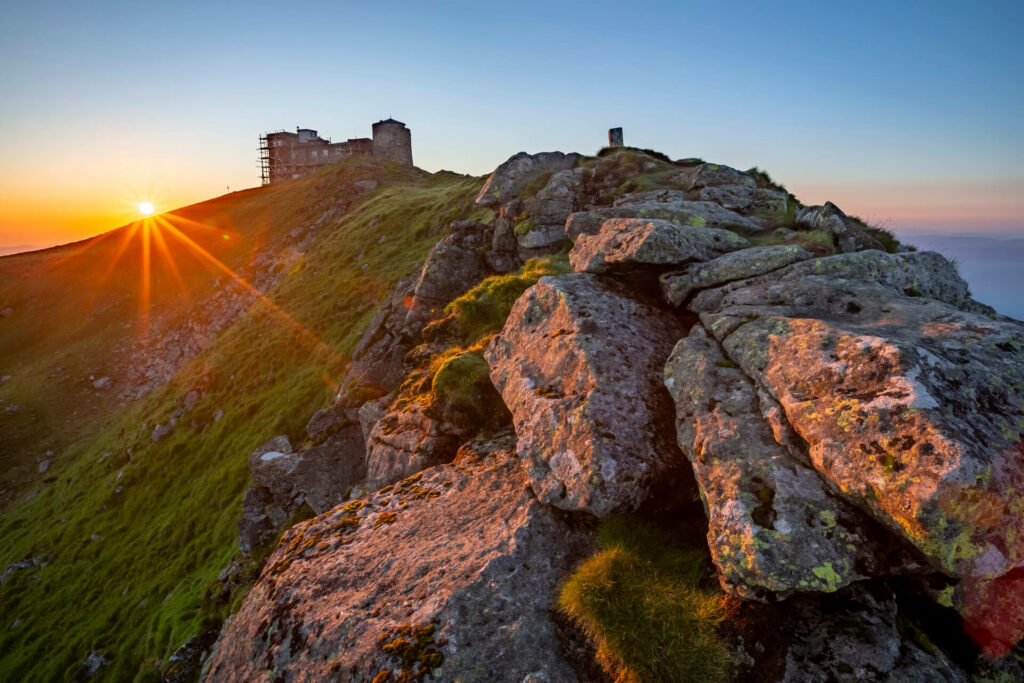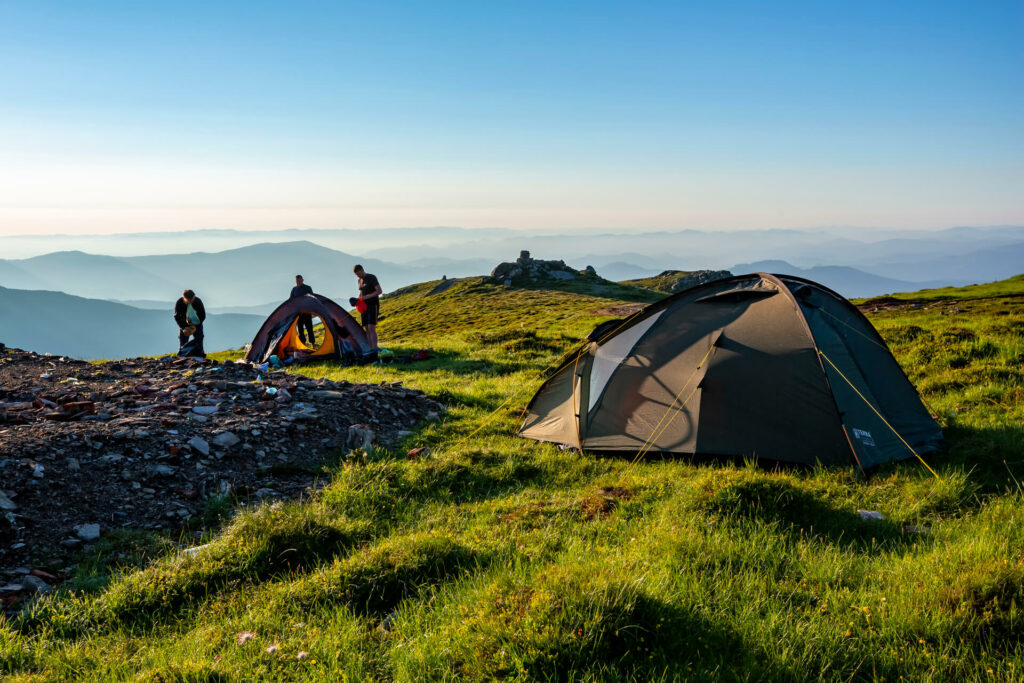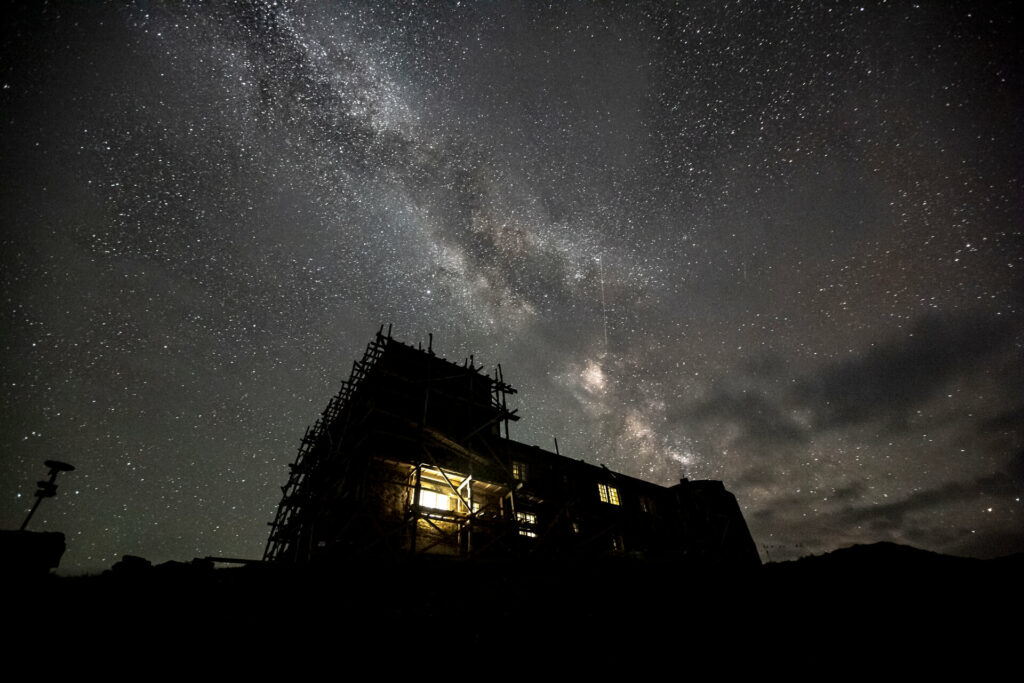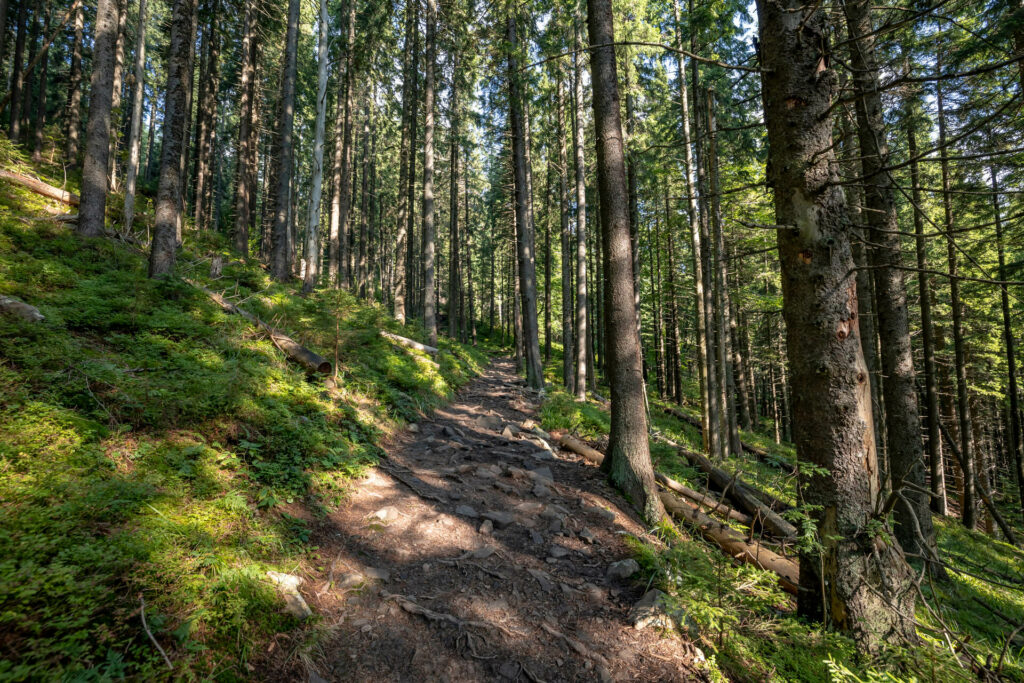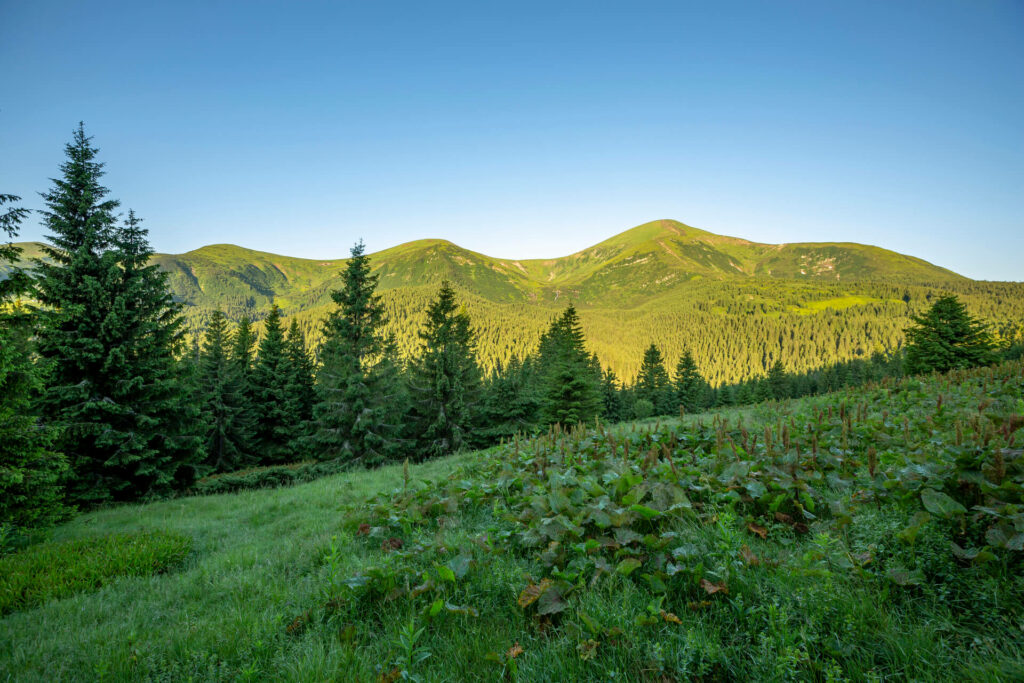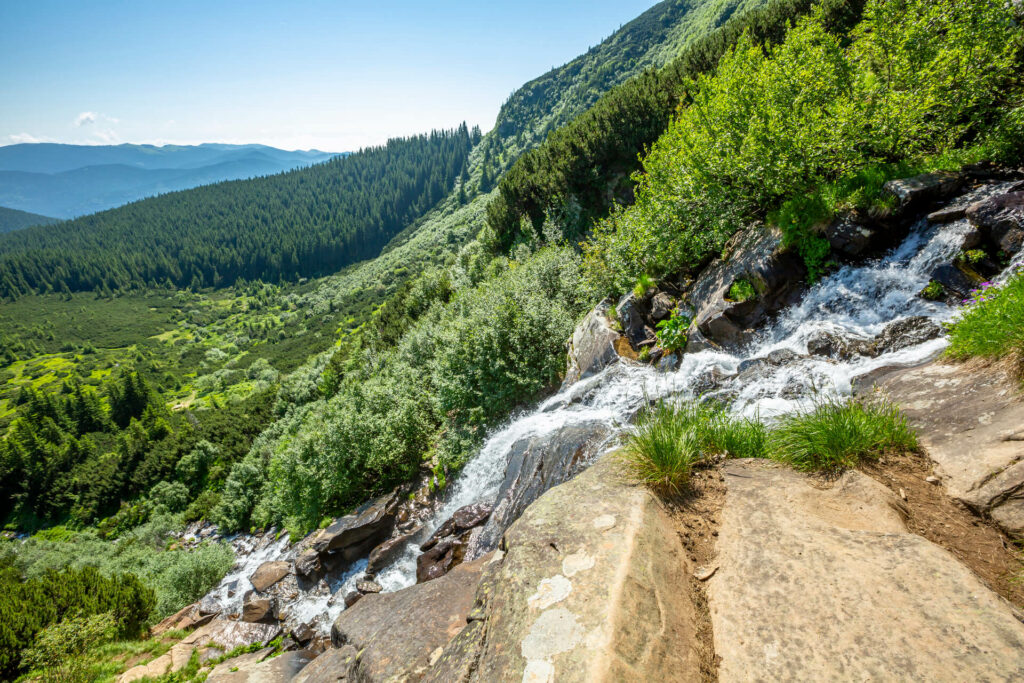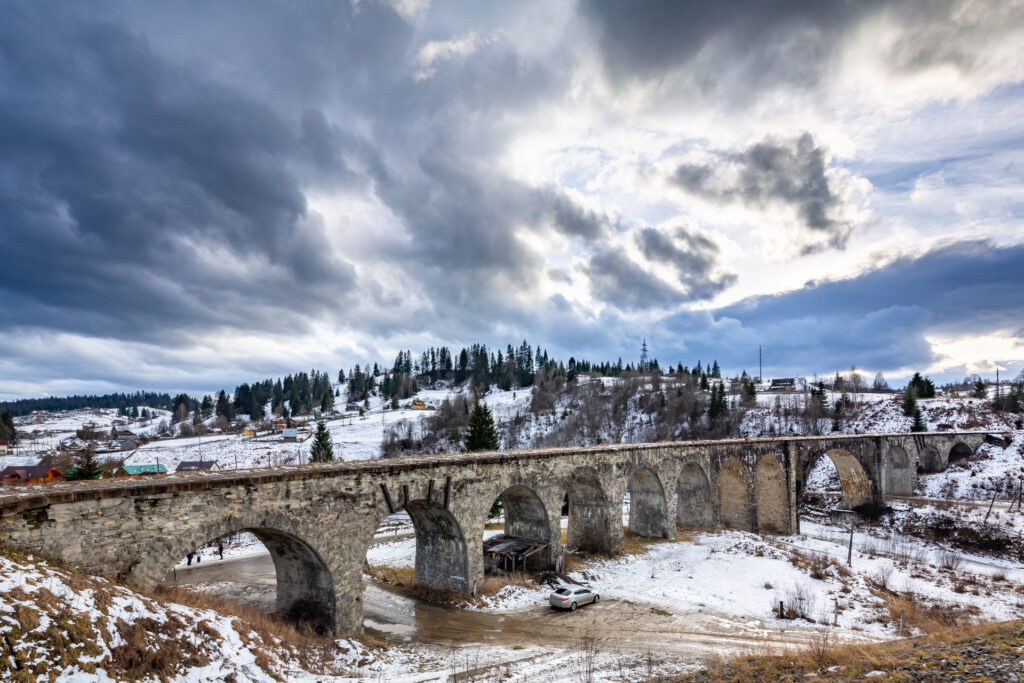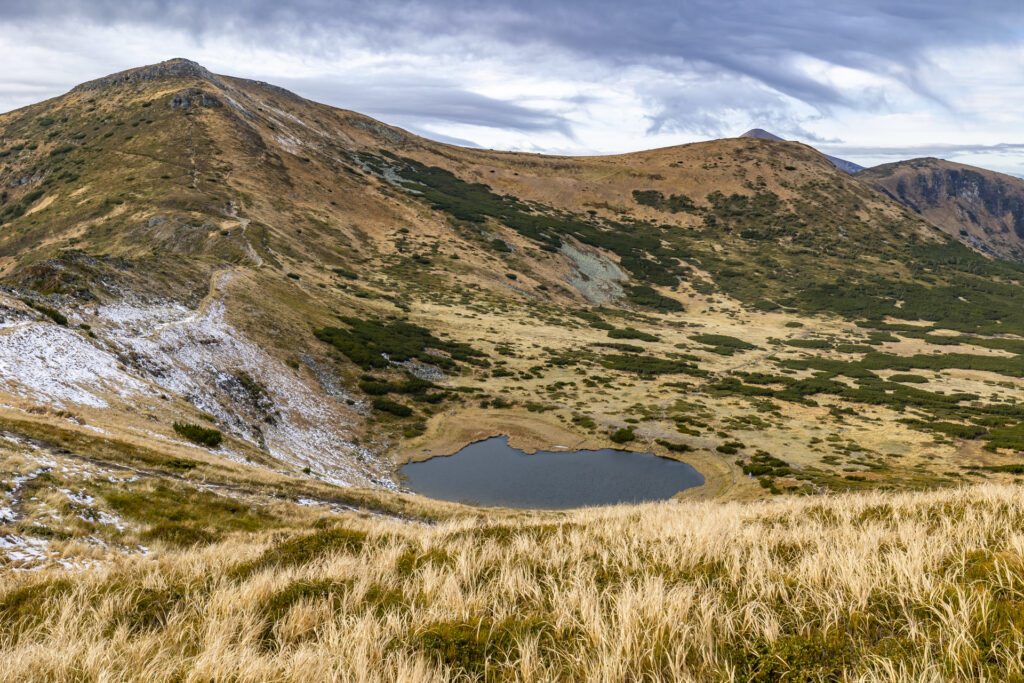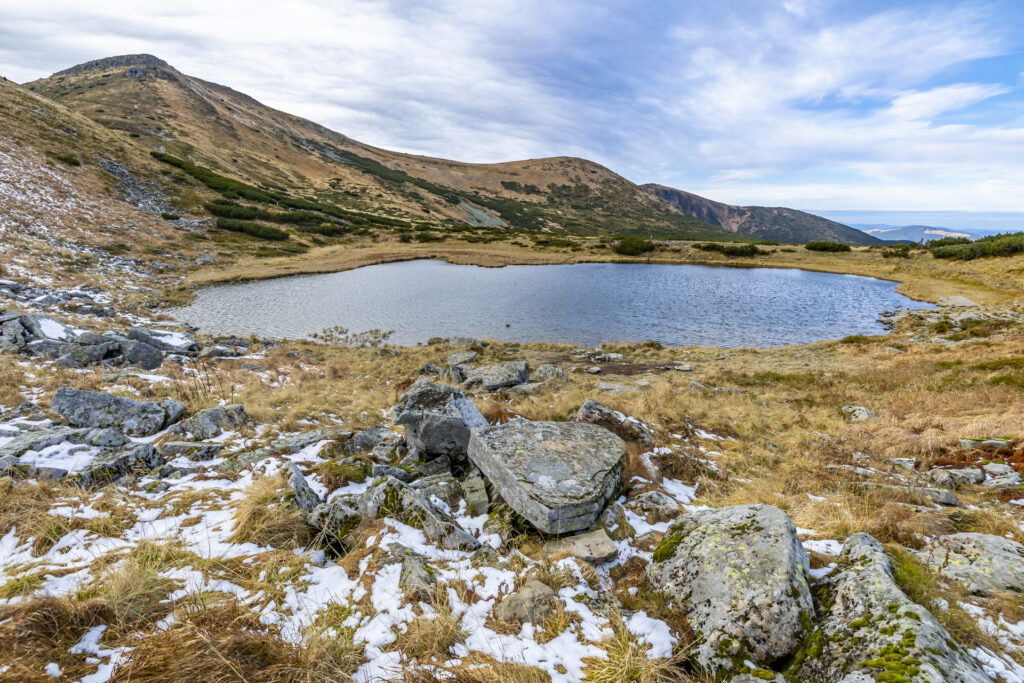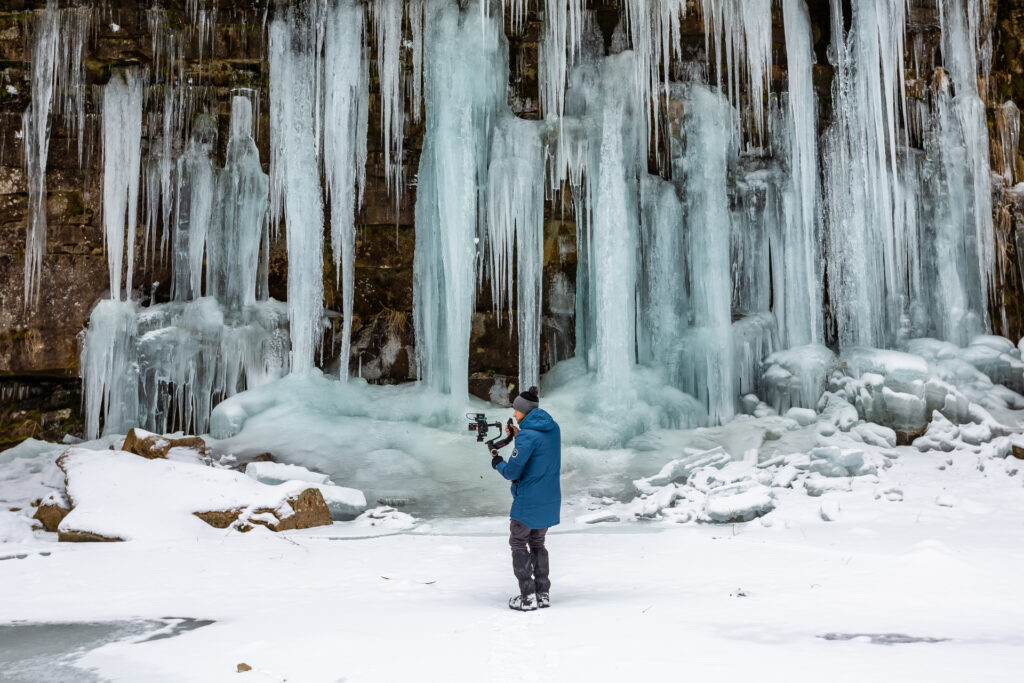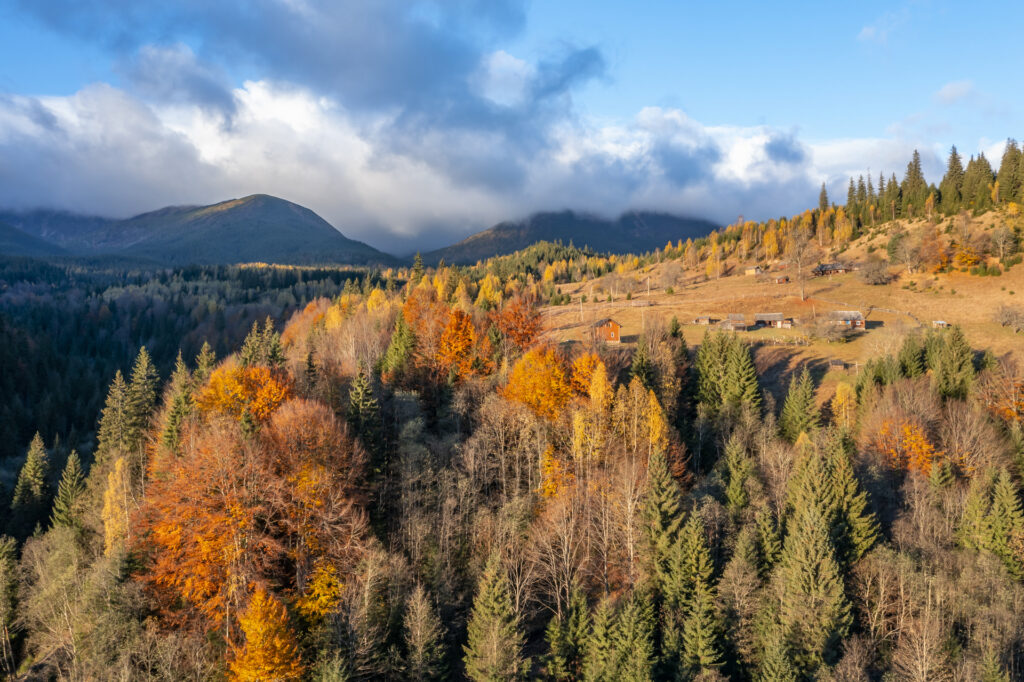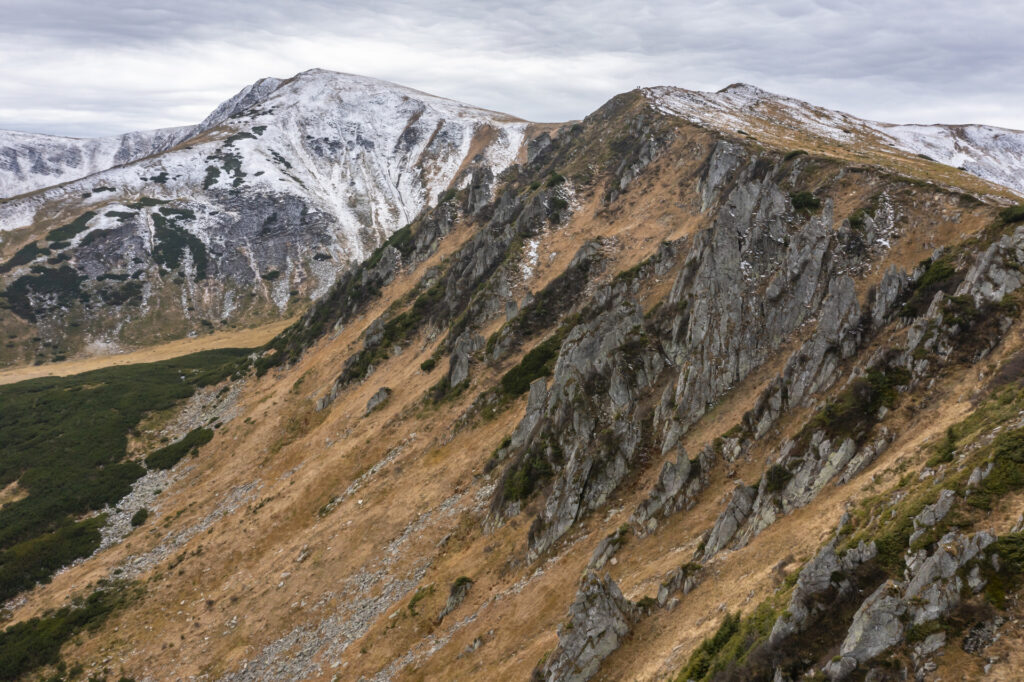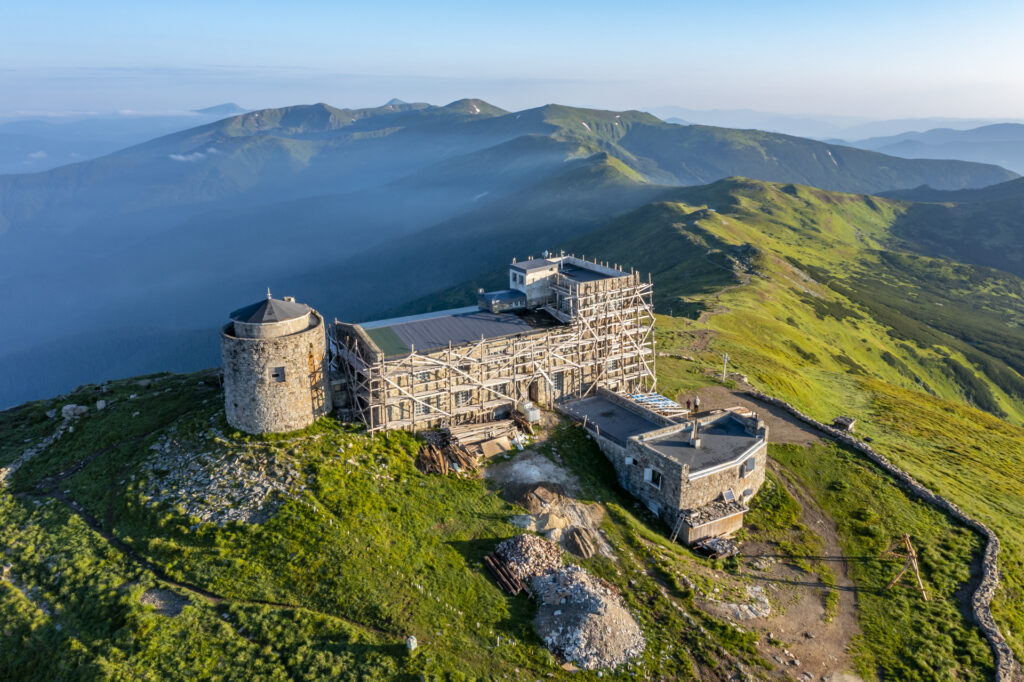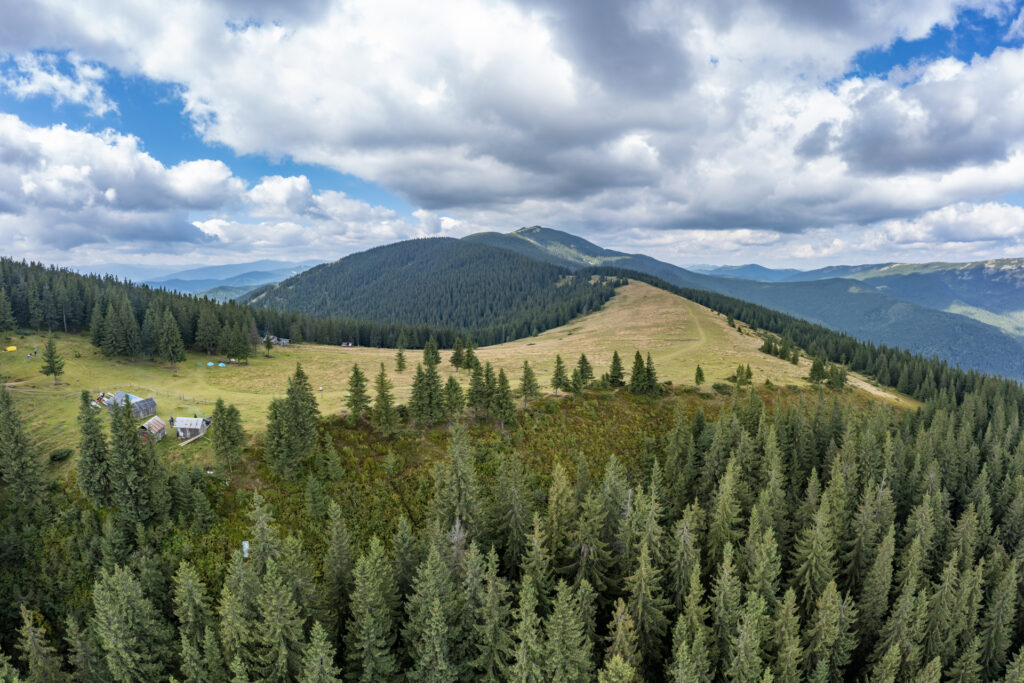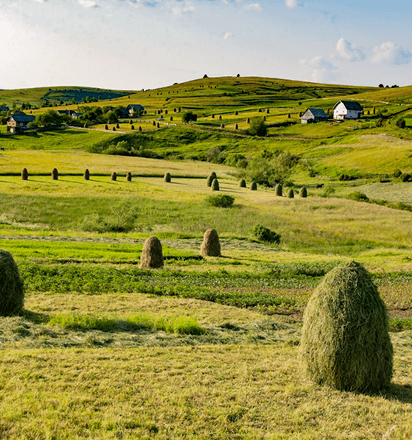Carpathian National Nature Park
The Carpathian National Nature Park (NNP) in Ukraine is home to dense primeval forests, glacial reservoirs, fast-flowing rivers, and the enigmatic Chornohora and Gorgany mountain ranges. Rich biodiversity, striking peaks such as Mount Hoverla and Pip Ivan, and the fascinating remnants of the “White Elephant”observatory are just a small selection of the unique natural and cultural offerings found in the park.
The stunning wilderness spans more than 50,000 hectares, of which more than 38,000 hectares are protected under permanent conservation programs.
Park area 505,1 Sq km.








A network of trails is currently being developed in the park, which already extends for more than 140 kilometers. Visitors can see brown bears foraging for food alongside glacial lakes and peat bogs and hear the howls of wolves in their natural habitat. Spotted salamanders, golden eagles, lynx, and black storks are just a few of the many protected species found in the park, which boasts one of the most biodiverse ecosystems in Europe.
This incredible diversity also extends to plant life, with the Carpathians home to more than one-third of European plant species. The region’s primeval beech forests were designated a UNESCO World Heritage Site in 2007. And while all fans of the Carpathians will be familiar with the East Carpathian rhododendron, the park is also home to 80 other endangered plant species listed in the Red Book of Ukraine.
Support for creating management plans. The Frankfurt Zoological Society (FZS) aims to conserve wildlife and ecosystems, with a focus on safeguarding protected areas and outstanding wild places. FZS provides support to the Carpathian NNP as it carries out essential conservation tasks.
The conservation efforts in the Carpathian NNP are coordinated under the “Conservation of highly valuable primeval and old-growth forests in selected national parks in the Ukrainian Carpathians” project, a collaborative initiative aimed at effectively organizing and managing conservation work in the park. This consists of a multi-stage process:
- Assessment of the ecological, sociological, and cultural values and resources of the park, including their conditions, threats, and impacts.
- Formulating a 10-year conservation strategy.
- Creating a five-year action plan to maximize results in preserving high conservation value aspects of the park.
The project’s development and organization are being carried out by a team of FZS experts, NNP specialists, and local communities and other stakeholders. Management plans for the project are currently under development.
Expansion and consolidation of nature conservation areas. FZS has been supporting and participating in efforts to expand the boundaries of the Carpathian NNP since 2013. In particular, plans have been drawn up to incorporate state-managed land of around 13,500 hectares in the park’s core area, which includes the Vorokhtyan and Delyatinsky forest farms.
Biodiversity monitoring. To qualitatively monitor the state of biodiversity in the Carpathian NNP, FZS utilizes the Spatial Monitoring and Reporting Tool (SMART) system. The system helps to collect, measure, and evaluate biodiversity data effectively and efficiently. Smartphones and other necessary equipment were purchased and provided to park security personnel. Additionally, training and ongoing user support is provided. Acoustic receivers have been deployed to collect data on birds and bats, enabling species identification and population estimates. Since 2021, camera traps have been used to monitor large predators.
Operating cost support. Due to constraints on state funding as a result of Russia’s ongoing invasion of Ukraine, FZS has been providing ongoing financial support for the implementation of the conservation plan in the park since May 2022. This assistance includes procuring office space, communications support, fuel expenses, maintenance and repair costs for vehicles, and electrical and computer equipment purchases.
Improving the ability to perform environmental protection tasks. FZS is the primary coordinator of the Support to Nature Protected Areas in Ukraine (SNPA) project. The initiative has facilitated the purchase of vehicles such as cars and motorcycles for park employees, distribution of uniforms to security personnel, and provision of essential computer and IT equipment delivered to support specialists in carrying out park operations.
What do we do
By combining international experience with local knowledge and expertise, we support the preservation of the large areas of pristine and near-pristine nature in Ukraine. We mainly do this by supporting projects in major protected areas such as national parks, biosphere reserves, and large nature reserves.
